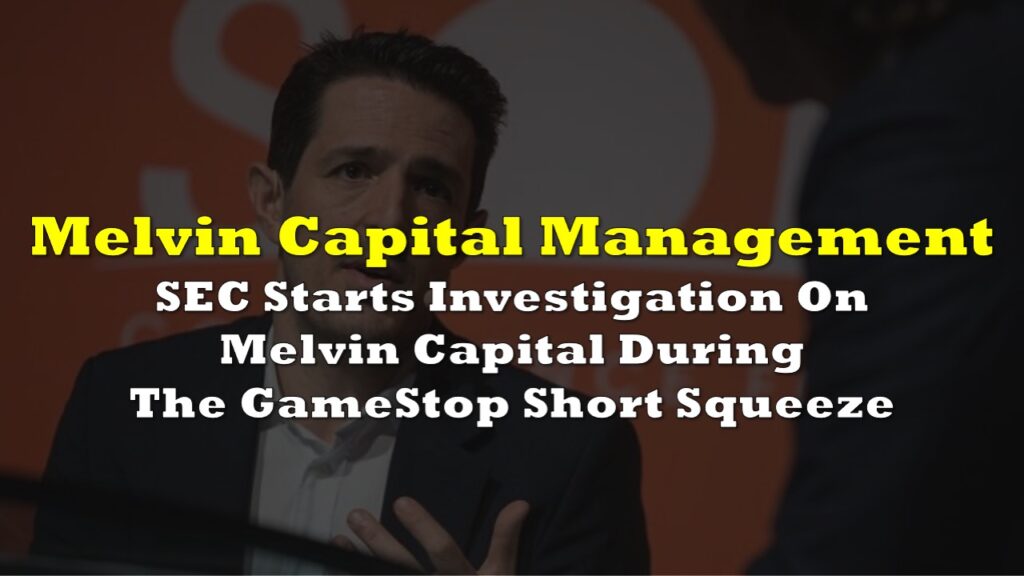Roped into a budding landmark legal battle with the Securities and Exchange Commission (SEC), Coinbase Global (NASDAQ: COIN) and its operations as a crypto exchange is under a microscope, including whether the company lists crypto assets on its exchange that are developed by firms Coinbase has invested in.
On Saturday, CEO Brian Armstrong participated in an interview with The Wall Street Journal, closely following the SEC’s lawsuit against Coinbase where the regulatory body claims that the crypto exchange has been functioning as a securities exchange, broker-dealer, and clearing house without obtaining registration from the commission.
In the interview, Armstrong was asked if Coinbase’s venture arm invests in crypto firms with tokens that are traded on the exchange, raising a possible conflict of interest.
“I think most of those have been just standard venture investments in startups,” Armstrong replied. When asked if Coinbase’s investment in a certain token is a factor in deciding whether to list that coin or not on the exchange, Armstrong reasoned that Coinbase doesn’t take listing fees.
“As far as I know on the digital asset listing group, they don’t look at our personal Coinbase venture investment,” he added.
This true? https://t.co/tLSya7jgLX
— jack (@jack) June 11, 2023
Earlier in the interview, Armstrong noted that Coinbase has a group who decides which digital asset gets listed on the exchange, but said he’s not part of that committee.
“I helped design and give input on the process and how it was designed originally with lawyers. But I’m not actually one of the decision makers intentionally,” he said.
Twitterverse was quick to point out some of the crypto firms Coinbase invested in that also lists their tokens on the platform, including Aptos and DeSo.
Investment source: https://t.co/PfBvhQtswq
— Salil Sethi (@salilsethi) June 11, 2023
And you can trade $DESO token on Coinbase. pic.twitter.com/v5Ph0TMa95
Factcheck: @brian_armstrong dodged the question on whether @Coinbase invests in tokens on the platform.
— Pledditor (@Pledditor) June 10, 2023
I went through Coinbase Venture's entire portfolio, and found that these 30 projects were both part of their investment portfolio, as well as traded on @Coinbase exchange https://t.co/UCqy6kGpvK pic.twitter.com/ltPlhAh74x
Not rocket science
Armstrong emphasized in the interview that regulating crypto isn’t “rocket science” and is confident that the United States will achieve regulatory clarity, “even if it takes a while.”
“It’s actually not rocket science. This is just applying some of these basic common sense ideas to the industry. And then, once we have that legislation in place, I think we’ll see some of the entrepreneurs who’ve left the US come back and say, ‘okay, I feel we’re not just going to be attacked randomly or have incredibly high legal bills at any given moment and we can actually build a business in the US again,'” Armstrong said.
Adds important detail that was edited out of the shorter version
— Brian Armstrong 🛡️ (@brian_armstrong) June 10, 2023
Armstrong argued that the move to face the SEC in court is to provide clarity on the longtime regulatory concern on whether crypto assets should be considered securities, which the regulatory body said that “all crypto except Bitcoin is security.”
“We have to go to challenge that. We’re proud to do it for the industry and for America,” the chief executive said.
Regarding the lawsuit, Armstrong stated that he believed Coinbase did not require those registrations to operate, as the assets traded on the exchange are commodities and not securities. He also mentioned that Coinbase had faced difficulties activating a broker-dealer license that it had acquired but was still dormant due to regulatory constraints.
Armstrong emphasized that achieving regulatory clarity in the cryptocurrency industry is not an insurmountable challenge and expressed hope that the SEC vs. Coinbase lawsuit would bring more clarity to the overall industry and prevent the United States from falling behind other countries.
He highlighted the need for clarification on key regulatory points, such as establishing clear boundaries between the SEC and the Commodity Futures Trading Commission, as well as implementing basic consumer protection, financial statement audit requirements, and procedures for Anti-Money Laundering and Know Your Customer.
He reiterated that there is currently no comprehensive rule book for cryptocurrency regulations in the U.S. and expressed frustration at the lack of feedback from the SEC despite Coinbase’s continuous efforts to seek clarity.
Following the SEC lawsuit, Coinbase found itself yet in another kerfuffle after the Alabama Securities Commission issued a show cause order to the firm, giving it just 28 days to justify their continued operations in the state.
The ASC is part of a multi-state task force, consisting of 10 state securities regulators, including California, Illinois, Kentucky, Maryland, New Jersey, South Carolina, Vermont, Washington and Wisconsin.
“The Alabama Show Cause Order alleges that Coinbase violates the securities law by offering its staking rewards program accounts to Alabama residents without a registration to offer or sell these securities,” the ASC said in a statement.
Staking involves investors locking their crypto assets for a specific period to support the operation of a blockchain, with the promise of receiving additional crypto assets as rewards.
Coinbase last traded at $50.42 on the Nasdaq.
Information for this briefing was found via the Coin Telegraph and the sources mentioned. The author has no securities or affiliations related to this organization. Not a recommendation to buy or sell. Always do additional research and consult a professional before purchasing a security. The author holds no licenses.









